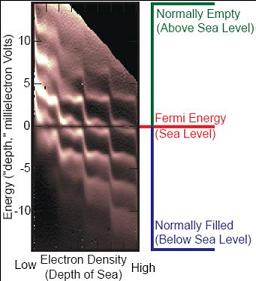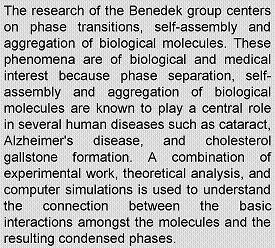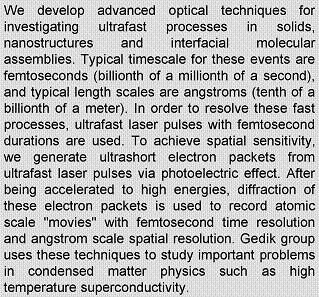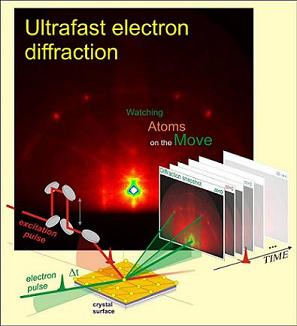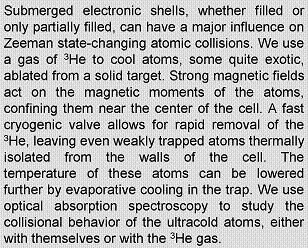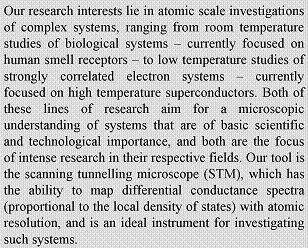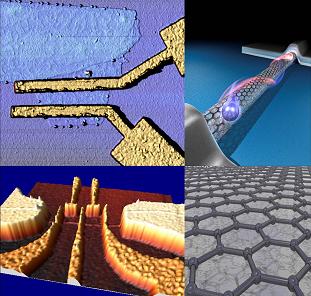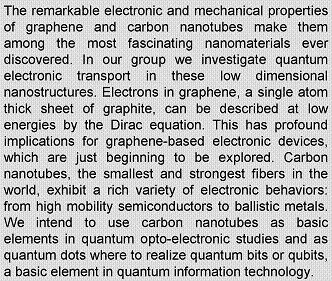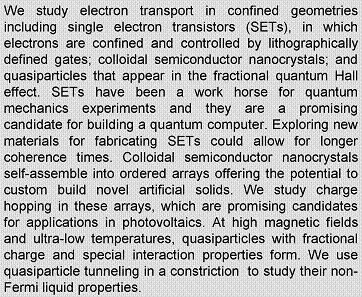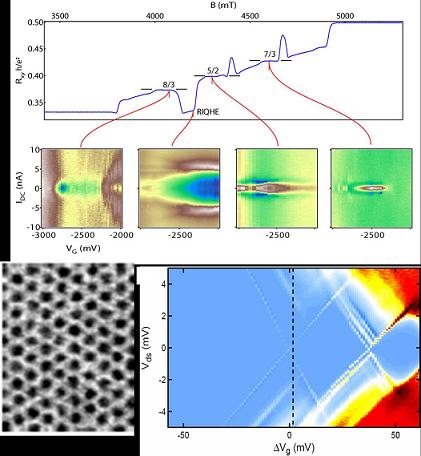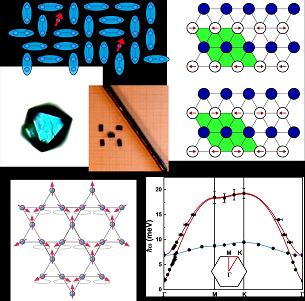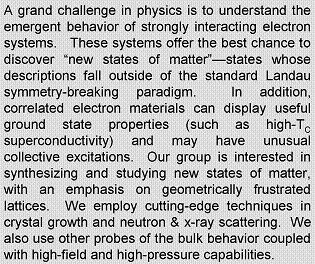| |
C |
o |
n |
d |
e |
n |
s |
e |
d |
| |
M |
a |
t |
t |
e |
r |
|
|
|
| e |
X |
p |
e |
r |
i |
m |
e |
n |
t |
|
Research
Groups |
|
|
|
| |
|
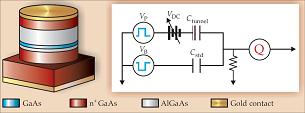
For the complete article featuring this work, see Search
& Discovery in Physics Today, September 2007
|
|
|
|
|
|
|
|
|
Diagramatic representation of aelotopic
(highly anisotropic) interactions between proteins. These
interactions can be very important in determining phase
boundries of protein solutions. |
|
|
|
|
|
|
|
|
|
|
|
|
|
|
|
|
STM
reveals multiple layers of complexity in high temperature
superconductors. Behind the topography, revealing locations
of atoms, lie an inhomogeneous gap distribution, low energy
states generated by impurities, and checkerboard charge
order
|
|
|
|
|
|
|
|
|
|
|
|
|
|
|
|
|
|
Living
systems are intrinsically noisy. Surprisingly, the functioning
of a living organism is not significantly hindered by
these random fluctuations. Biological cells can even
exploit noise by deliberately introducing diversity
into a population. In these cases noise is not a nuisance,
but essential for survival. Advances in modern biochemistry
and genetics have led to a detailed understanding of
the molecular machinery involved in gene expression,
and the constant flow of data from the Genome Project
has enabled the identification of more and more genes.
A millennial challenge is to quantitatively understand
how different genes and their regulating proteins are
grouped together in genetic circuits, and how stochastic
fluctuations influence gene expression in these complex
systems. In our group we focus on the importance of
noise in the expression of genes by using both experimental
and theoretical approaches.
|
|
|
| |
CMX
Wiki |
| |
| |
|
|
| |
poehlman at mit dot edu on
September 2, 2008 12:53 PM
|
|

